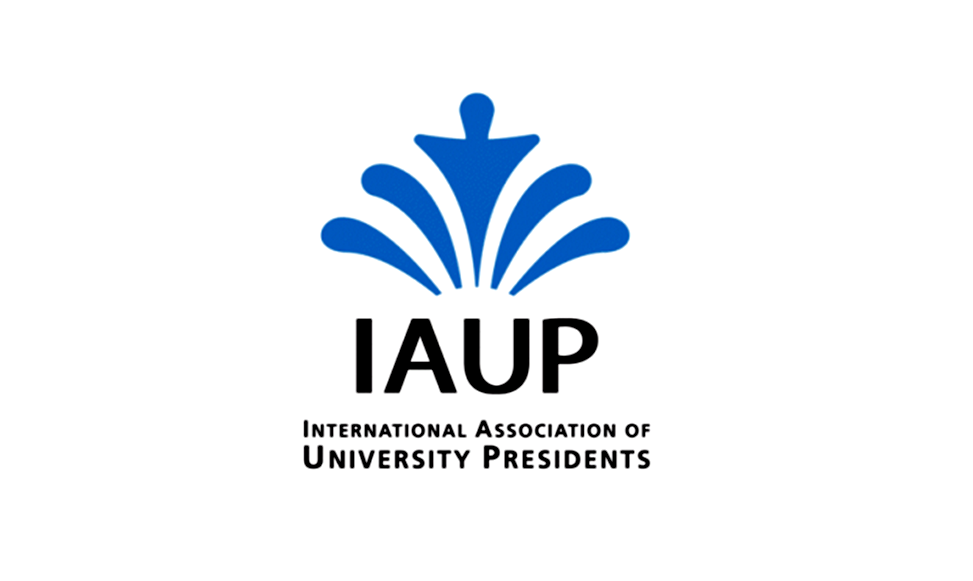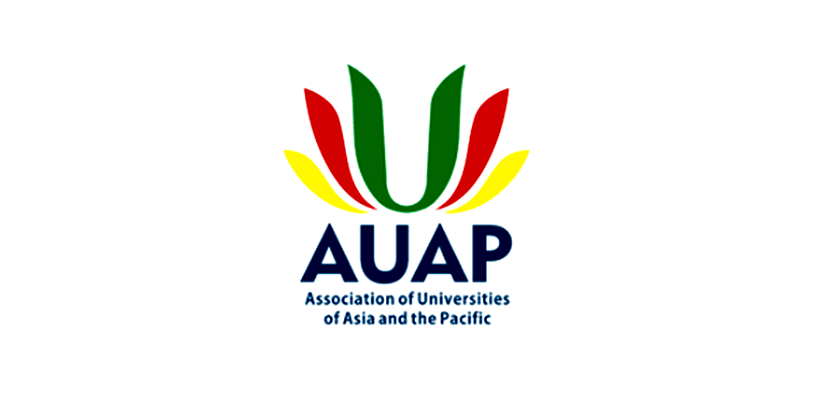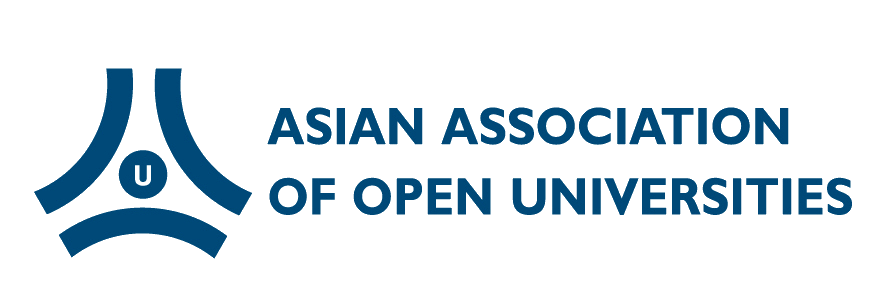Education News
Detailed Explanation of the Joint Training Program between APSB and USY

Detailed Explanation of the Joint Training Program between APSB and USY
University of Sanya (USY) is a full-time private university approved by the Ministry of Education of China, supervised by the Education Department of Hainan Province, and located in Sanya City, Hainan Province. As a comprehensive, research-oriented private university, it is fully funded and established by Geely Holding Group, a Fortune Global 500 enterprise. USY is a member institution of the International Entrepreneurship and Education Alliance of Chinese Universities (IEEAC). Formerly known as Sanya College of Hainan University founded in 2005, it was restructured and renamed University of Sanya with the approval of the Ministry of Education in March 2012. Currently, it ranks 2nd in the 2025 ABC China Private University Rankings and 1st in the Most Beautiful Private University Campus Rankings. With over 24,000 students (including more than 2,100 international students), USY is a key force in higher education in Hainan.
Covering an area of 3,000 mu (200 hectares) with a total construction area of over 560,000 square meters, USY has invested more than 3 billion yuan in its development. The campus integrates modern architectural aesthetics with tropical ecological landscapes, featuring swaying coconut palms and an atmosphere where the scent of books mingles with sea breezes, earning it recognition as one of Hainan's Top Ten Ecological Buildings. Advanced teaching facilities complement the pleasant natural environment, including a high-performance supercomputing center (ranked among the top five in Chinese universities in computing performance) and an intelligent trading laboratory (a provincial key social science laboratory).
USY comprises 15 colleges offering 69 undergraduate programs (including specialized tracks) across 9 disciplines: economics, management, law, literature, education, art, engineering, science, and medicine. Its faculty of over 1,500 includes more than 1,200 full-time teachers, ranging from experienced academic leaders to dynamic young talents. The university has established 3 academician workstations, undertaken over 100 national and provincial-level projects such as National Natural Science Foundation and Social Science Foundation projects, and built friendly cooperative relationships with more than 90 universities in over 30 countries.
The Asia Pacific School of Business (APSB) traces its origins to the Qiren Academy (Asia Pacific Management Research Center) founded in Singapore in 1995. In 1999, it was accredited by Singapore's Ministry of Education and Committee for Private Education as an associate degree-granting institution and renamed The Asia Pacific School of Business, initiating its development strategy of "rebranding, restructuring, transformation, and upgrading." Upholding the educational philosophy of "Integrating Eastern and Western Wisdom, Unifying Knowledge and Practice," APSB focuses on humanities, arts, business, finance, new engineering, and management disciplines, adhering to a "blended teaching" approach to integrate into the Asia-Pacific region and the Chinese cultural circle. Guided by its mission of "Rooted in Singapore, Inheriting Chinese Culture" and its motto "Enlightening Virtue to Clarify Aspirations, Cultivating Benevolence and Compassion," APSB nurtures applied, practical, and professional high-level talents needed in the Asia-Pacific region, particularly within the Chinese cultural circle, providing intellectual support for Chinese civilization and social development.
APSB implements a "Five-in-One Learning Model" that integrates "international learning," "experiential learning," "cross-cultural learning," "peer learning," and "value-added learning," alongside a "blended education" approach combining "campus study," "online distance learning," and "industry-government practice tours." Committed to enhancing teaching quality and academic standards, APSB pioneered international authoritative accreditation for its programs. Its joint bachelor's, master's, and doctoral programs in management are among the first in Singapore to receive accreditations from ASIC, AMBA&BGA, ACBSP, IACBE, QM, UNWTO TedQual, CPD, EEQA, and QAHE.
APSB has also adopted international quality standards, obtaining ISO 9001:2015, ISO 21001:2018, ISO 29990:2010, and ISO 29995:2021 certifications in education from the Royal AQS (UK) and EAJAC (Europe-America Accreditation Center). It is a member of prestigious academic organizations and international bodies including UNESCO, UNAI, SEAMEO, UNESCO-CHAIR, EDEN, EDUCAUSE, AAOU, AUAP, ECOSOC-UN, USDLA, IAPUC, and IAUP. APSB has established cooperative mechanisms with universities, research institutions, and professional organizations in over 20 countries/regions, and signed joint training or dual-degree agreements with renowned institutions worldwide, providing students with international learning platforms to broaden their global perspectives.
In December 2024, The Asia Pacific School of Business (APSB) and University of Sanya (USY) signed a strategic cooperation agreement on mutual study-abroad programs and joint training, marking a new stage in higher education cooperation between China, Singapore, and Vietnam. Under the agreement, USY will provide full consigned training services for international students from APSB's Vietnam campus studying in China, covering four-year undergraduate programs, two-year master's programs, and three to five-year doctoral programs. This innovative cooperation model will offer high-quality international educational resources to students in Southeast Asia while promoting educational and cultural exchange among the three countries.
Accommodation Arrangements: Comfortable and Convenient Campus Living Environment
USY provides dedicated international student apartments for APSB students, implementing a accommodation system that combines standardized management with humanized services. According to the "USY International Student Apartment Management Regulations," international students must register for accommodation with valid identification documents and occupy assigned rooms as arranged by the International Exchange and Cooperation Office, without unauthorized room changes or furniture rearrangement.
Accommodation options include single and double rooms priced at RMB 50 and RMB 35 per person per day respectively. Apartments are fully furnished with essential amenities such as beds, bedside tables, wardrobes, desks, and chairs, along with high-speed Wi-Fi access to meet students' academic and daily needs. Public facilities include laundry rooms and common lounges within dormitory buildings for student convenience.
A deposit system is implemented for accommodation management. Students must pay a RMB 50 deposit upon registration (RMB 25 each for door access card and utility card), which will be fully refunded upon checkout if no damage is incurred and cards are returned intact. Accommodation fees are paid in full per semester. Students requiring accommodation during vacations must pre-pay based on planned stay duration, with adjustments made for any discrepancy between actual and planned stay duration.
To ensure student safety and proper rest, dormitory regulations prohibit exiting the building after 24:00, with special circumstances requiring registration at the dormitory office. Visitor hours are restricted to 8:00-22:00, and overnight guests are strictly prohibited. International students are required to live on campus for their first semester; those studying for more than six months may apply for off-campus accommodation from their second semester, following proper registration procedures.
Academic System: International Bilingual Teaching Model
Drawing on its successful cooperation experience with Berkeley College (USA), USY has developed a customized international curriculum system for the APSB program. The bilingual teaching model incorporates specialized courses taught by faculty from APSB's Singapore campus, who collaborate with Chinese faculty to form "dual-teacher teams" for shared high-quality educational resources.
The curriculum integrates educational characteristics from China, Singapore, and Vietnam, retaining the solid foundations of Chinese higher education while incorporating the practical orientation of Singaporean business education and the local strengths of Vietnamese regional studies. Course development is led by USY in conjunction with APSB's academic strengths, ensuring curriculum content meets Chinese higher education standards while addressing economic and social development needs in Southeast Asia. Business programs will particularly emphasize case studies related to Hainan Free Trade Port construction to cultivate students' international perspectives and regional development insights.
In academic governance, the two institutions jointly establish an Academic Committee and a Degree Committee as the highest decision-making bodies for academic affairs. The Academic Committee exercises overall authority in academic decision-making, review, evaluation, certification, and consultation, including formulating academic standards, assessing educational and research achievements, and reviewing program offerings. The Degree Committee is responsible for approving degree recipients, verifying authorized disciplines, evaluating graduate supervisor qualifications, and overseeing degree award quality. This dual academic governance structure ensures high standards of educational quality and authoritative degree conferral.
To broaden students' international horizons, the program offers outstanding students short-term study abroad opportunities for academic exchange with APSB's Singapore campus and other partner institutions, further enriching their learning experience.
Scholarship System: Multi-level Funding Framework
USY has established a comprehensive scholarship system for APSB program students, modeled after the "Hainan Provincial Government Scholarship," with three tiers:
- Undergraduate Scholarship: 4-year duration (5 years for medical programs), RMB 15,000 per student per year
- Master's Scholarship: 2-3 year duration, RMB 18,000 per student per year
- Doctoral Scholarship: 2-3 year duration, RMB 25,000 per student per year
Scholarships primarily cover academic expenses including registration fees, tuition, basic textbook costs, and comprehensive insurance. In addition to the above scholarships, USY will offer Annual Excellent Student Scholarships based on academic performance and campus participation to encourage academic excellence and active engagement.
Scholarship evaluation is conducted by the jointly established Academic Committee following principles of fairness, impartiality, and transparency, based on comprehensive assessment of academic performance, attendance, and overall qualities. Application guidelines are published before each academic year, with eligible students submitting applications through APSB's academic management department.
Note that scholarships do not cover accommodation fees, medical examination fees (approximately RMB 260), or residence permit fees (RMB 800/year), which must be borne by students themselves.
Dual Degree Accreditation: Tri-National Ministry of Education Recognition
The program's most distinctive advantage is that graduates receive dual degree certificates recognized by the Ministries of Education of China, Singapore, and Vietnam. Degrees awarded by USY are naturally recognized by China's Ministry of Education, while APSB degrees receive dual recognition from Singaporean and Vietnamese education authorities, creating a unique "one qualification, three-country recognition" advantage.
This accreditation is rooted in solid intergovernmental cooperation frameworks: China and Vietnam signed the "Sino-Vietnamese Agreement on Mutual Recognition of Higher Education Qualifications and Degrees" as early as 2009. As a formally registered institution with Singapore's Ministry of Education, all APSB's full-time and part-time programs are accredited and registered with Singapore's Committee for Private Education. Furthermore, APSB became a member institution of the Southeast Asian Ministers of Education Organization (SEAMEO) in 2022, which includes Singapore, Vietnam, and 9 other Southeast Asian countries, further ensuring regional recognition of its degrees.
APSB's academic quality has also received recognition from international organizations, including membership in the International Assembly for Collegiate Business Education (IACBE), partnership with the Global Academy of Finance and Management (GAFM), and membership in the United Nations Academic Impact (UNAI) initiative. These international accreditations provide additional assurance of global recognition for its degrees.
For international students, dual degree certification not only means government recognition across three countries but also broader career development opportunities. Whether seeking employment in China, Singapore, Vietnam, or pursuing further education elsewhere, this qualification serves as important academic credentials. Particularly against the backdrop of Hainan Free Trade Port's continuous development, professionals with educational backgrounds in China, Singapore, and Vietnam will possess unique advantages in regional economic cooperation.
Responsibility Division: Collaborative Education Mechanism
Under the agreement, USY and APSB have established a clear division of responsibilities to form an efficient collaborative training mechanism.
As the main education provider, USY assumes core responsibilities including:
- Curriculum Development: Designing curriculum systems meetingtri-national education standards, integrating Chinese, Singaporean, and Vietnamese educational characteristics
- Student Training: Providing teaching resources, faculty, and academic management, implementing daily teaching activities
- Student Accommodation: Managing international student apartments and related services to meet living needs
- Scholarship Administration: Establishing and managing scholarship programs, formulating evaluation criteria and disbursement procedures
- Academic Assessment: Organizing course evaluations and academic assessments, providing objective and fair feedback
APSB primarily handles student management-related affairs:
- Student Administration: Including recruitment, orientation, and daily behavior management
- Academic Advising: Providing course selection guidance, learning progress tracking, and academic support
- Student Safety: Ensuring student safety during their stay, including accommodation and travel safety
To ensure educational quality, the two institutions jointly establish Academic and Degree Committees as cross-institutional academic governance bodies. The Academic Committee oversees academic achievement recognition, teaching quality assessment, and program approval; the Degree Committee is responsible for formulating degree standards, verifying graduate qualifications, and awarding degrees. This joint governance model ensures unified academic standards while leveraging each institution's strengths.
As a renowned business school in Singapore, APSB will utilize its extensive international network to provide students with global academic resources. Its partnerships with world-class institutions such as Boston College, SUNY, University of California, Korea University, Gakushuin University (Japan), and Chulalongkorn University (Thailand) will offer abundant international exchange opportunities for students at the Sanya campus.
Promoting Regional Educational Integration
The strategic cooperation between APSB and USY not only innovates transnational higher education models but also provides a new pathway for talent development in Southeast Asia. Through the consigned training mechanism, students access international educational resources without studying abroad, significantly reducing educational costs, while the dual degree accreditation system addresses the longstanding issue of regional qualification recognition.
For USY, this program represents a major breakthrough in international education, enhancing its influence in Southeast Asia and attracting more international students to China. For APSB, cooperation with USY facilitates rapid expansion of its educational services in China while leveraging Chinese higher education resources to strengthen its academic capabilities.
From a broader perspective, this cooperation model will bridge educational exchanges between China, Singapore, and Vietnam, fostering cultural understanding and mutual trust. Particularly under the dual frameworks of the "Belt and Road Initiative" and Hainan Free Trade Port construction, cultivating professionals with tri-cultural backgrounds and international perspectives will provide intellectual support and talent guarantees for regional economic cooperation and cultural exchange.
In the future, the two institutions plan to deepen cooperation in joint research, faculty-student exchanges, and internship training, gradually building a comprehensive, multi-level educational cooperation system to contribute to higher education integration in the Asia-Pacific region.
























